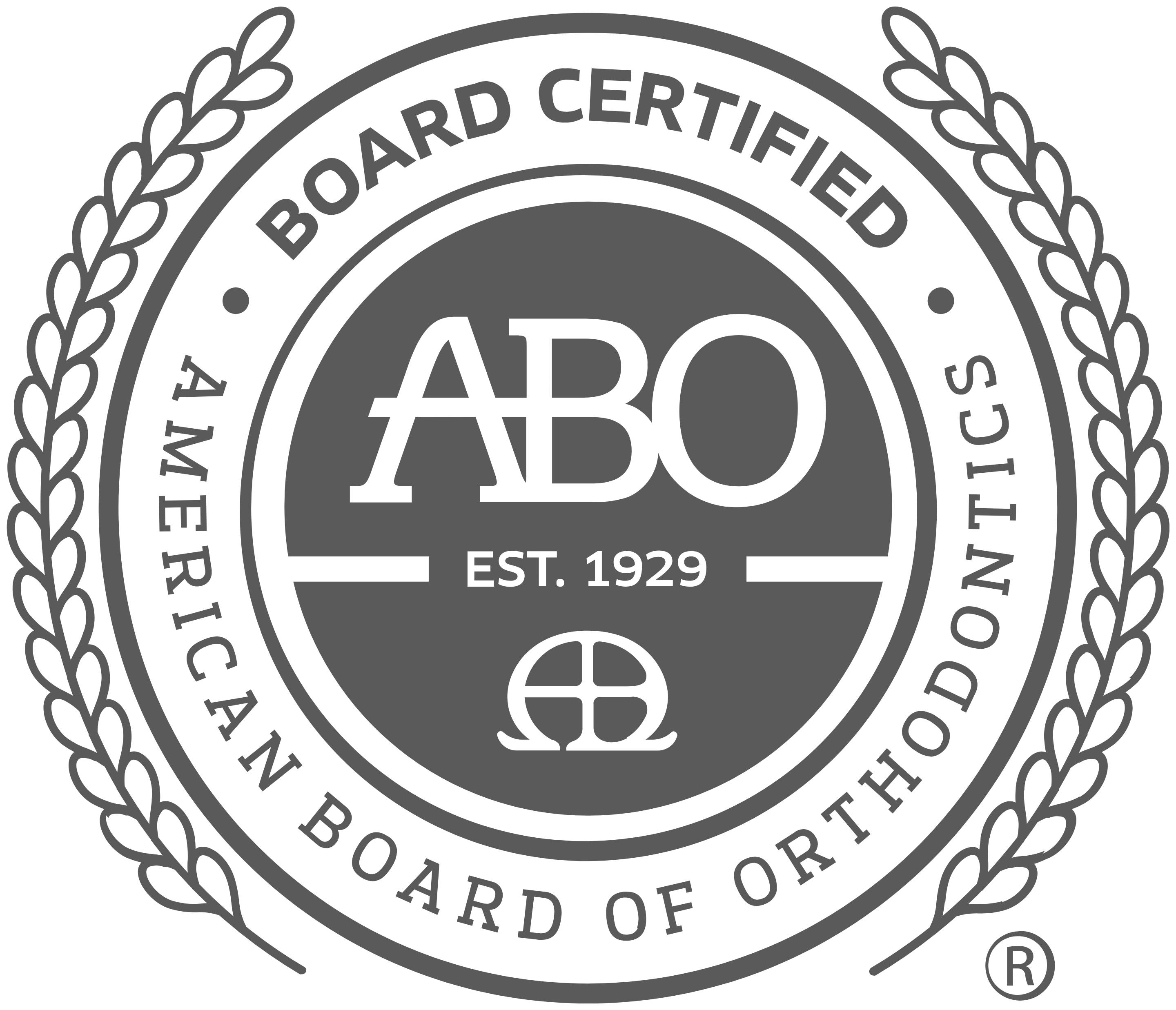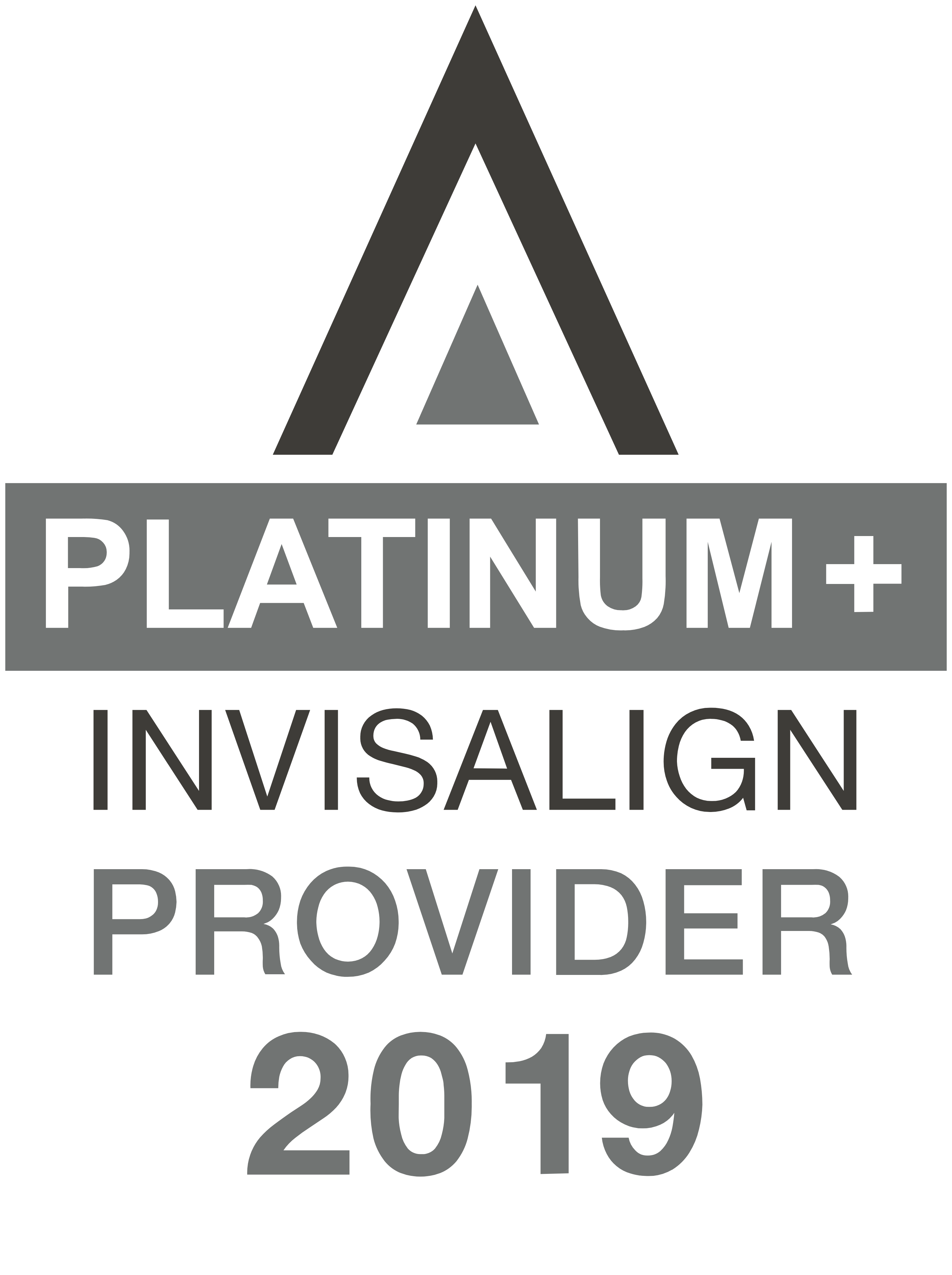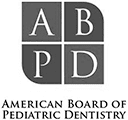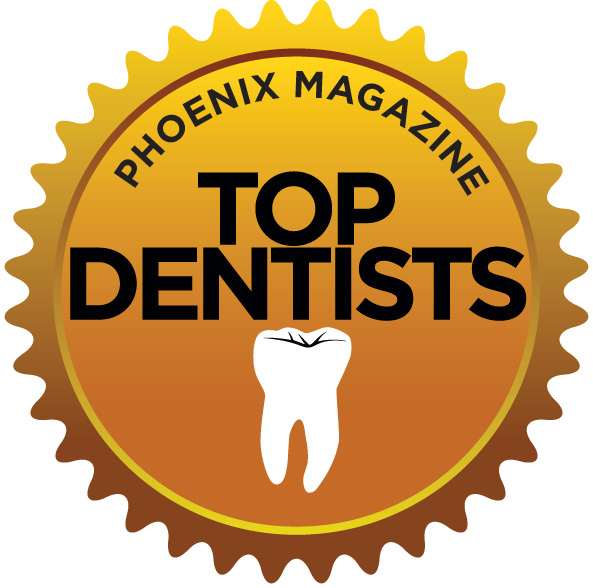
ORAL HYGIENE/FOODS TO AVOID
If you’re one of those people who is used to only brushing once or twice a day, we hope you change that habit once your braces are on. Infrequent brushing can cause plaque to build up and lead to cavities and scarring of your teeth. We recommend you brush your teeth four times each day to fend off those pesky food particles that want to gather on your teeth and braces. The recommended brushing times are: in the morning after breakfast; after lunch or right after school; after dinner; at bedtime.
If you’re one of those people who is used to only brushing once or twice a day, we hope you change that habit once your braces are on. Infrequent brushing can cause plaque to build up and lead to cavities and scarring of your teeth. We recommend you brush your teeth four times each day to fend off those pesky food particles that want to gather on your teeth and braces. The recommended brushing times are: in the morning after breakfast; after lunch or right after school; after dinner; at bedtime.
To help ward off infection and reduce irritation that could develop from your braces, we recommend using a hydrogen peroxide antiseptic mouth rinse up to four times a day after you brush. A mouth rinse like this can also help any irritation caused by your braces or any cheek bites, canker sores or other gum tenderness.
Clean Deeper With an Interdental Toothbrush
You can clean hard-to-reach places between your teeth, under your archwires and around your braces by using an interdental brush. This type of brush can sometimes be an alternative to flossing when used gently to avoid any damage to your wires or gums.
Besides daily brushing and flossing, you can get even more protection from tooth decay by applying a small amount of sodium fluoride before bed. This gel can kill bacteria and replenish the minerals in your tooth enamel that may have been removed by harmful acids. About a minute on your teeth will do the trick, the spit it out and don’t drink or eat for 30 minutes.
How to Clean Your Orthodontic Appliance
To keep your removable appliance clean and free of germs, food particles and plaque, you should brush and soak your appliance daily. You can use a denture-cleaning tablet in water to soak your appliance each day.
Some of the foods on this list are common sense for braces — avoid hard foods, like raw vegetables or hard candies, as these can break brackets and wires, and avoid gummy, sticky foods, as these can get caught between brackets and cause damage to your braces. Equally important to avoid, though, are sugary foods. These interact with naturally occurring bacteria in your mouth to form acids that eat away at tooth enamel, leading to tooth decay and cavities. Also avoid nail biting, pencil or pen chewing, and chewing on any foreign objects — all of these can damage your braces.

Common Orthodontic Problems
Crowding occurs when teeth have insufficient room to erupt from the gum. Crowding can often be corrected by expansion, and many times, tooth removal can be avoided.
If you have missing teeth or if your teeth have gaps between them, APDO can help.
If you have missing teeth or if your teeth have gaps between them, APDO can help.
Like protrusion, an overbite can cause the lower front teeth to bite into the roof of the mouth but because the upper front teeth extend out over the lower front teeth.
When your lower jaw protrudes out from your upper jaw, lower teeth will close in front of your upper teeth causing both cosmetic and physical challenges.
If you have an open bite, you may have difficulty chewing your food because the upper and lower front teeth don’t overlap. This can lead to several unwanted habits such as tongue thrusting.
Mismatched Dental Midlines
Off-center teeth means the line between your two upper front teeth and your two lower front teeth are not aligned.

Invisalign® Care
Do
Any time you take your aligners out of your mouth, rinse them thoroughly under running water. This will rinse away bacteria, saliva, and food particles.
Proper care isn't just about clean aligners — your teeth need to stay clean, too! Be sure to brush and floss your teeth regularly to prevent build up of plaque and bacteria under the aligners.
Proper care isn't just about clean aligners — your teeth need to stay clean, too! Be sure to brush and floss your teeth regularly to prevent build up of plaque and bacteria under the aligners.
Use Clear, Anti-Bacterial Soft Soap
This is a great way to keep your aligners free of bacteria and plaque.
Ideally, you want to brush them every time you take them out or put them back in — but be careful, as overzealous brushing can leave visible marks and scratches.
Don't
Foods and colored drinks can stain your aligners and leave an unpleasant smell, so stick with water while you're wearing them.
Toothpaste is great for your teeth, but it can harm your aligners. When you brush them, do so gently and without paste.
Use Scented or Colored Soap
Using anything but clear soap with aligners can cause them to stain.
Traveling With Invisalign
While the removability of Invisalign makes them hugely convenient, it can also cause problems - particularly when traveling. It's all too easy to misplace them, break them, or even leave them in another country when traveling. If you'll be traveling with Invisalign, here are some helpful tips for taking care of them on the go:
In general, you should carry at least three pairs of aligners with you when you travel — your current set, your previous set, and your next set. If you'll be out of town for more than a few weeks, we recommend taking more.
It's easy to lose a case, so we always recommend bringing a backup just in case.
While it's best to brush them every time you take them out or put them back in, at a restaurant in another country, this may not be practical. At a minimum, you can rinse out your mouth and aligners before putting them back in, then brush once you're back in your room.

Orthodontic FAQ
1. Is it required that my family dentist schedule my appointment with the orthodontist?
No, it is not. Many of our patients are referred by their family dentist, yet many other patients take the initiative to schedule an examination themselves.
2. At what age should I schedule an appointment for an orthodontic screening?
The American Association of Orthodontists recommends an orthodontic screening at age 7. By this age, several permanent teeth in most children have erupted, allowing us to effectively evaluate your orthodontic condition.
3. Will my teeth straighten out as they grow?
No, they will not. The space available for the front teeth does not increase as you grow. In most people, after the permanent molars erupt, the space available for the front teeth decreases with age.
4. How do I schedule an appointment for an initial exam?
If you or your child can potentially benefit from orthodontic treatment, simply call our office, send us an e-mail or fill out our appointment request form online. We will be happy to schedule an appointment for you. When you call to schedule your appointment, our front office staff will request some basic information from you.
5. What will happen at the initial examination appointment?
Upon arriving, each patient and parent will be seen by the staff and doctor who will acclimate you to our office and prepare for the initial exam. We will take the necessary photographs and X-rays to allow us to make a proper diagnosis. The doctor will then complete a brief, but thorough, exam.
6. What will I learn from the initial examination?
There are five essential questions that we will cover during the initial examination:
- Is there an orthodontic problem, and if so, what is it?
- What must be done to correct the problem?
- Will any teeth need to be removed?
- How long will the treatment take to complete?
- How much will the treatment cost?
7. Will I need to have teeth extracted for braces?
Removing teeth is sometimes required to achieve the best orthodontic result. Straight teeth and a balanced facial profile are the goal of orthodontics. However, because new technology has provided advanced orthodontic procedures, removing teeth is not always necessary for orthodontic treatment.
8. How long will it take to complete treatment?
Treatment time obviously depends on each patient's specific orthodontic problem. In general, treatment times range from 8 to 30 months. The "average" time frame a person is in braces is approximately 18–24 months.
9. How much will braces cost? Are financing options available? How does my insurance work?
It is impossible to give an exact cost for treatment until we have examined you. We will cover the exact cost and financial options during the initial examination. We have several financing options available to accommodate your needs, and we will review these with you. We will also review your insurance policy and help to maximize your benefit and file your claims.
10. How often will I have appointments?
Appointments are scheduled according to each patient's needs. Most patients in braces will be seen every five to 10 weeks. If there are specific situations that require more frequent monitoring, we will schedule appointments accordingly.
11. Can I schedule all of my appointments after school?
Unfortunately, we cannot schedule all appointments for students during after-school hours. However, because most appointments are scheduled five to 10 weeks apart, most patients will miss minimal school due to their orthodontic treatments. We will, however, make a sincere effort to meet your scheduling needs.
12. Can I drop my child off for an appointment?
Yes. We understand your busy schedule, and we are happy to help you make the most of your time. On some occasions, we may request to speak with a parent when they return, so we ask that parents check in with their patient manager before dropping off their child.
Generally, braces do not "hurt." After certain visits, teeth may be sore for a few days. In these situations, pain medications such as Advil or Tylenol will ease the discomfort. However, after most visits, patients do not feel any soreness at all! We often remind our patients, “It does not have to hurt to work!”
14. Can I return to school the day I receive my braces?
Yes. There is no reason to miss school because of an orthodontic appointment.
No. Shots are not necessary in orthodontic treatment.
16. Do you use recycled braces?
Absolutely not! It is our belief that each patient should be provided with their own.
17. Can I still play sports?
Yes. We recommend a mouth guard for all sports.
18. Do I need to see my family dentist while in braces?
Yes! Regular checkups with your family dentist are important while in braces. Your family dentist will determine the intervals between cleaning appointments while you are in braces.
19. Are there foods I cannot eat while I have braces?
Yes. Once treatment begins, we will explain the complete instructions and provide a comprehensive list of foods to avoid. Some of those foods include: ice, hard candy, raw vegetables and all sticky foods (i.e., caramel and taffy). You can avoid most emergency appointments to repair broken or damaged braces by carefully following our instructions.
20. How often should I brush my teeth while in braces?
Patients should brush their teeth at least four times each day — after each meal and before going to bed. We will show each patient how to floss their teeth with braces and may also provide a prescription for a special fluoride, if necessary.
21. What is an emergency appointment? How are those handled?
If your braces are causing extreme pain or if something breaks, you should call our office. In most cases, we can address these issues over the telephone. If you require an emergency appointment, we will set aside time for you.
22. Can orthodontic correction occur while a child has baby teeth?
Yes. Some orthodontic problems are significant enough to require early intervention. However, if a patient is not yet ready for treatment, we will follow that patient's growth and development until the time is right for treatment to begin.Patients should brush their teeth at least four times each day — after each meal and before going to bed. We will show each patient how to floss their teeth with braces and may also provide a prescription for a special fluoride, if necessary.
23. What is Phase One (early) treatment?
Phase One treatment, if necessary, is usually initiated on children between the ages of 7 and 10. Phase One treatment lasts about 16–21 months. The primary objective for Phase One treatment is to address significant problems to prevent them from becoming more severe and to improve self-esteem and self-image.Patients should brush their teeth at least four times each day — after each meal and before going to bed. We will show each patient how to floss their teeth with braces and may also provide a prescription for a special fluoride, if necessary.
24. Will my child need full braces if they had Phase One treatment?
It is best to assume that your child will need full braces even after Phase One treatment. The period following Phase One treatment is called the "resting period," during which growth and tooth eruption are closely monitored. Throughout this period, parents and patients will be kept informed of future treatment recommendations.Patients should brush their teeth at least four times each day — after each meal and before going to bed. We will show each patient how to floss their teeth with braces and may also provide a prescription for a special fluoride, if necessary.
25. Will my child need an expander?
At the completion of the initial examination, we will determine whether a patient will need an expander.Patients should brush their teeth at least four times each day — after each meal and before going to bed. We will show each patient how to floss their teeth with braces and may also provide a prescription for a special fluoride, if necessary.
26. Is it too late to have braces if I am already an adult?
A surprising percentage of our patients are adults. In fact, 25 percent of all orthodontic patients are adults. Health, happiness and self-esteem are vitally important to adults. No patient is "too old" to wear braces!Patients should brush their teeth at least four times each day — after each meal and before going to bed. We will show each patient how to floss their teeth with braces and may also provide a prescription for a special fluoride, if necessary.
27. Can I wear braces even though I have crowns and missing teeth?
Yes. A tooth with a crown will move just like a tooth with a simple filling. When teeth are missing, orthodontic treatment will aid in the alignment of the remaining teeth.Patients should brush their teeth at least four times each day — after each meal and before going to bed. We will show each patient how to floss their teeth with braces and may also provide a prescription for a special fluoride, if necessary.
28. Why should I choose an orthodontic specialist?
Teeth, and sometimes entire facial structures, are permanently changed by orthodontic treatment. It is important that the treatment be appropriate and properly completed. Orthodontic specialists have extensive and specialized training that enables them to provide their patients with professional, personalized treatments.Patients should brush their teeth at least four times each day — after each meal and before going to bed. We will show each patient how to floss their teeth with braces and may also provide a prescription for a special fluoride, if necessary.
29. How long do I have to wear my retainers once my braces are off?
Wear your removable retainer full time as instructed. For most patients this is only for 1 month. Once you are given permission to switch to nighttime only wear of your removable retainers, you need to wear them while you sleep FOREVER. We provide a lifetime Retainer Guarantee, which you can read all about here

Orthodontic Emergencies
What Should I Do in an Orthodontic Emergency?
Thankfully, true orthodontic emergencies are exceedingly rare — but they can happen. We can handle most problems over a phone call, but if you have a more serious or pressing issue, we will schedule an emergency appointment ASAP and get you back on track to your new smile. While emergencies can range from minor issues to serious problems, we're here to help you no matter what happens, and the first step is always to call our office.
Minor Orthodontic Problems
The vast majority of problems with your orthodontic treatment will be minor, and many can be handled entirely over the phone. Still, even a minor problem can cause discomfort or impair your treatment. Even for minor issues, you should still call our office to determine how best to handle the issue. Any of the following problems qualify as a minor orthodontic emergency:
- Loose or Broken Braces: If a wire, bracket, or band in your braces breaks or loosens, it's important to take care of it right away. If the piece is still attached to your braces, leave it in place and avoid touching it until your repair appointment. If it falls out of your mouth, pick it up and bring it with you to your emergency appointment. If any part of your braces is causing you discomfort, you can cover them with a piece of dental wax until we make repairs.
- Discomfort from Pointy Archwires, Ties, or Brackets: Sometimes, the archwire — the thin, springy metal wire running through your braces — can shift position as your teeth move and begin to poke your mouth. If this happens, try using a clean pencil eraser, Q-tip, or a sterilized pair of tweezers to move it to a more comfortable position. If that doesn't work, try covering the area with dental wax. As a last resort for serious discomfort, you can clip the wire with a sterilized pair of nail clippers, but please call us before attempting this.
- Toothaches or Loose Teeth: As your braces move your teeth, you may experience minor discomfort or soreness in your teeth or gums. This is normal — in fact, it shows that your braces are working. Most discomfort is very mild and fades within a few days. For help managing the discomfort, try using a warm salt water rinse or over the counter painkillers like Tylenol. However, if the pain is beyond what you can handle or you notice the pain getting worse or not going away, it could be a more serious issue and we encourage you to contact us right away.
What Counts as a Major Orthodontic Emergency?
Serious orthodontic emergencies are rare, and truly only occur if they have the possibility of damaging your teeth, jaws, or mouth. The main major orthodontic emergencies include:
- An injury or other trauma to the mouth, teeth, or the face
- Swollen or infected gums or any other infection or serious swelling in the face
- Severe, unmanageable pain in the mouth or face
If you experience any of these problems, don't wait. Call us immediately at 480-556-0600. We'll talk with you to better understand the situation and schedule an emergency appointment. If you can't reach us, or you feel that you're in immediate danger, skip the call and head straight to the emergency room. Then, call us to tell us what happened when you feel safe.









